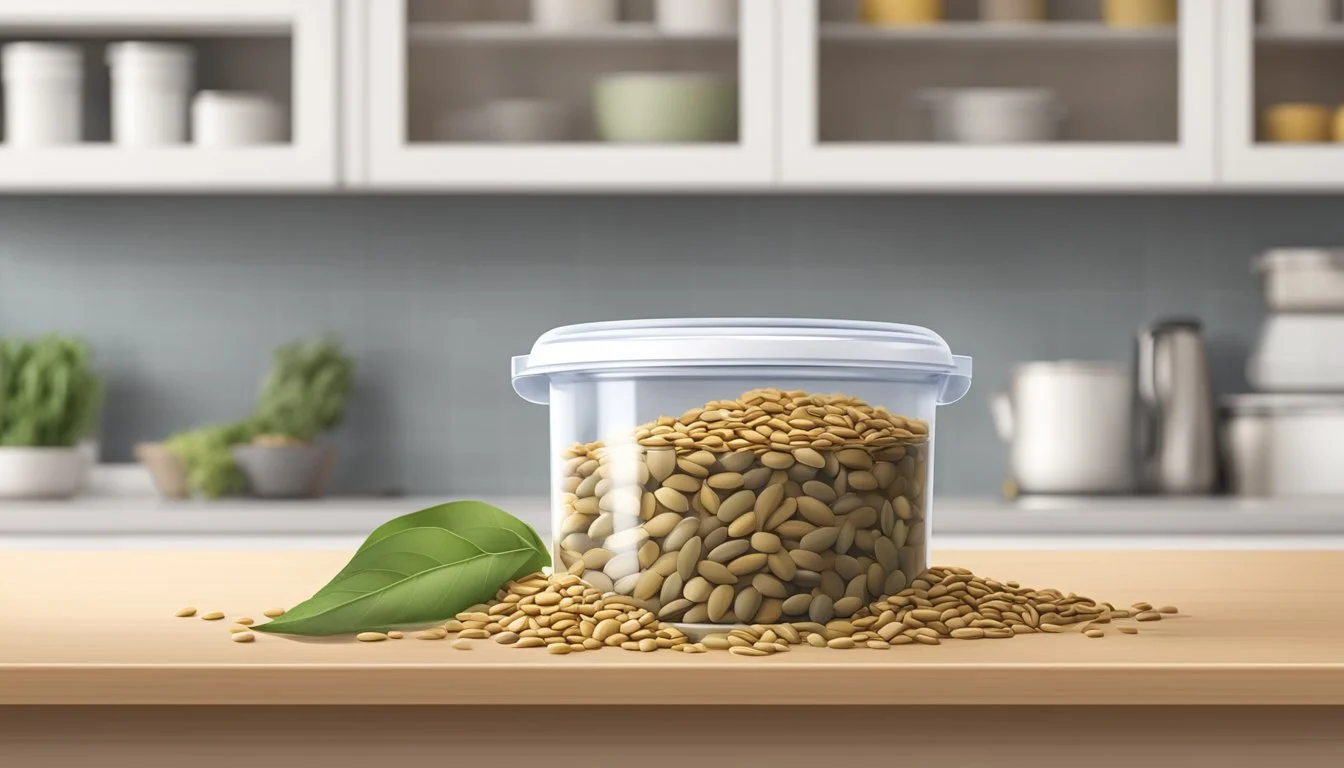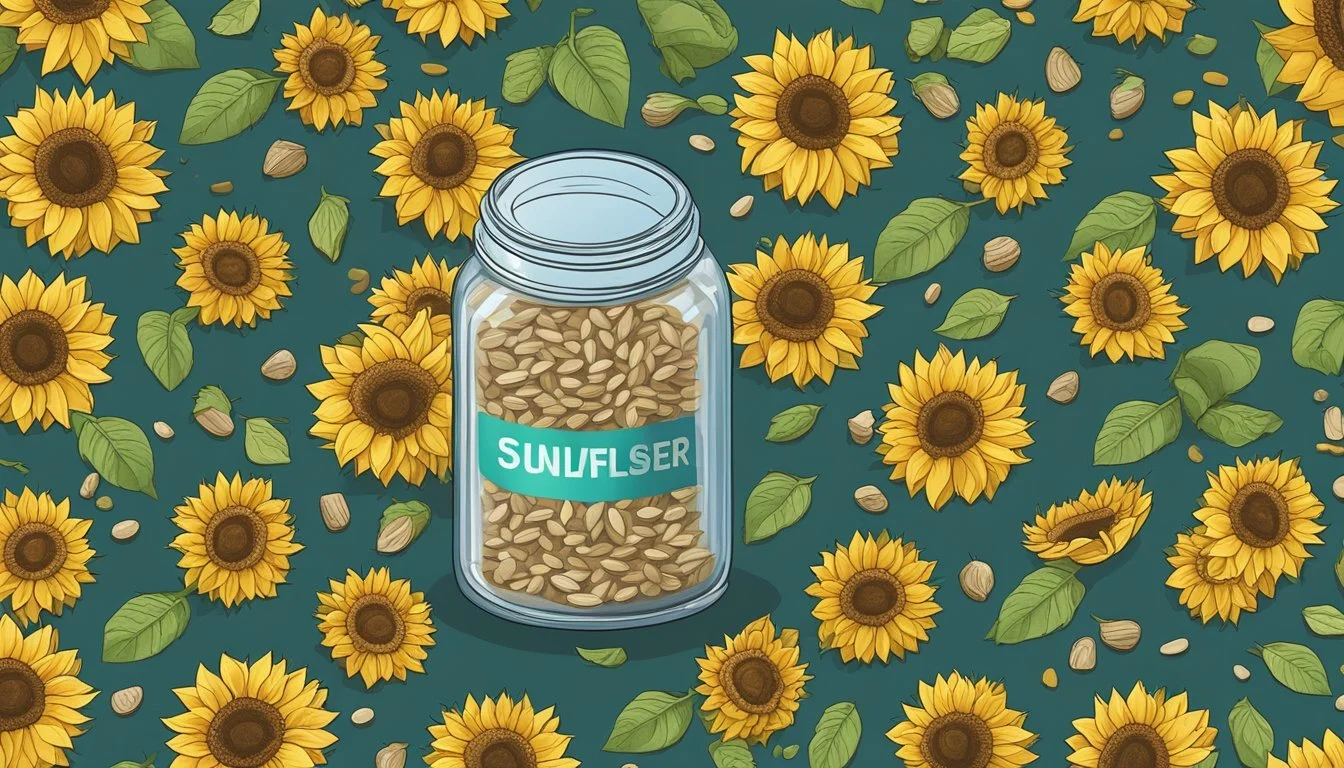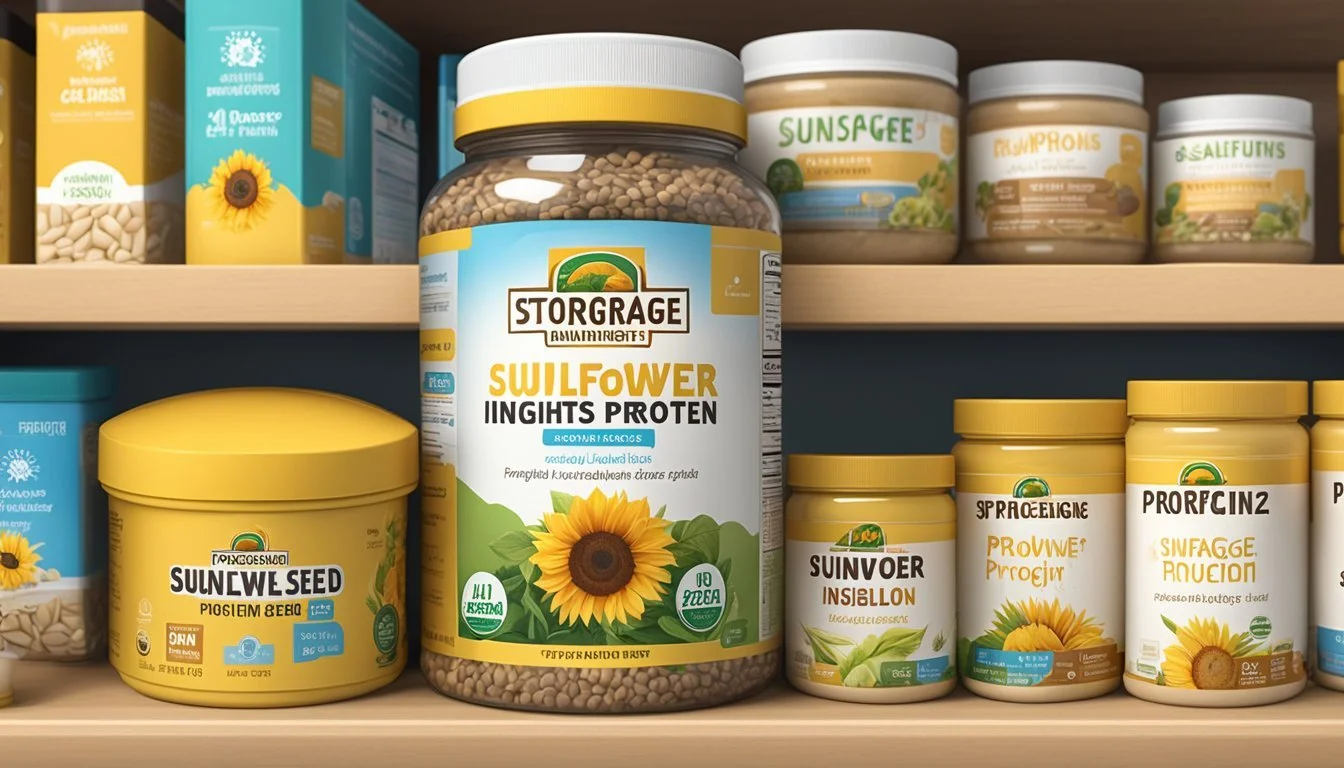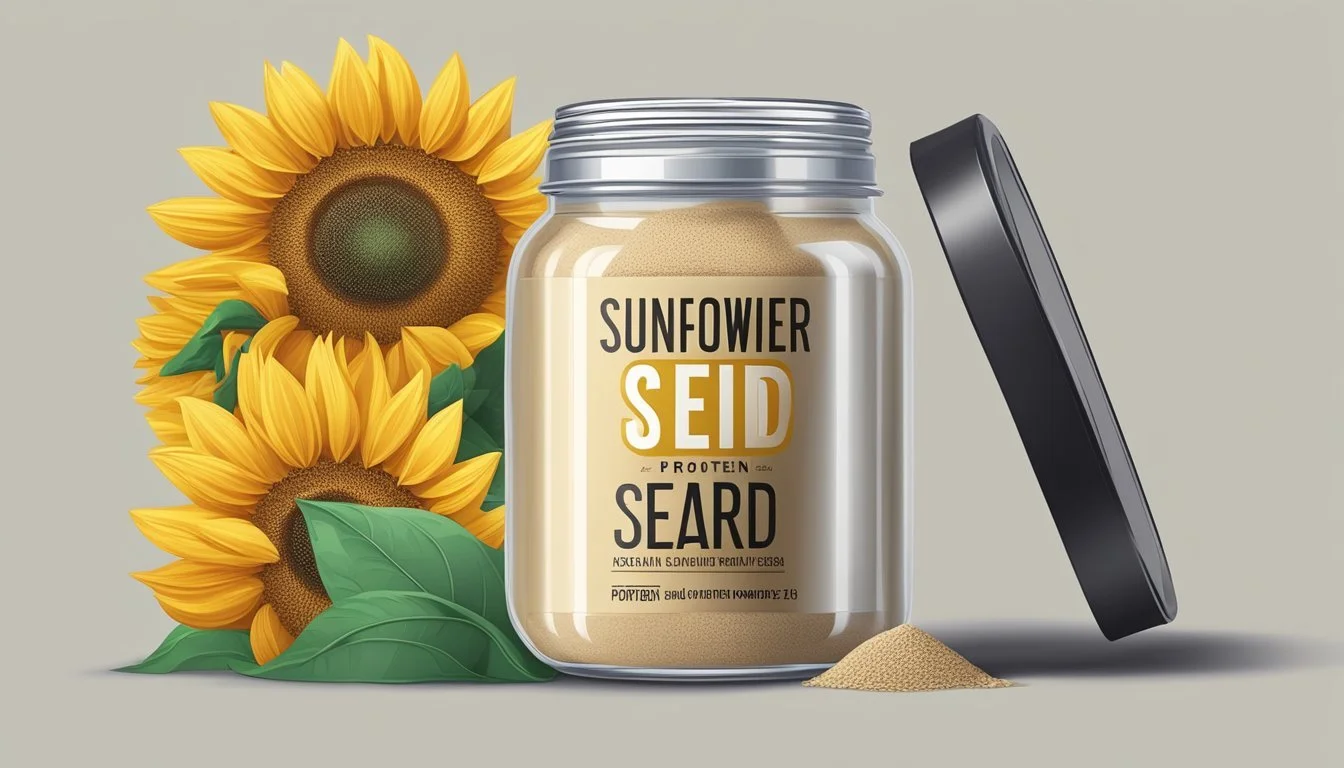Does Sunflower Seed Protein Go Bad?
Shelf Life & Storage Tips
Sunflower seeds are a popular snack choice known not only for their delicious taste but also for their impressive nutritional benefits. Packed with proteins, vitamin E, magnesium, and antioxidants, these seeds play a significant role in promoting heart health, reducing inflammation, and providing energy.
Despite their nutritional value, sunflower seed protein can go bad over time. Like many other seeds and nuts, sunflower seeds contain natural oils that are prone to oxidation. This can lead to rancidity, which not only affects the taste but also reduces the nutritional benefits. Proper storage, such as keeping them in a cool, dark place, can help extend their shelf life.
This article will explore how to identify spoiled sunflower seed protein and the best practices for storage to ensure you reap all the health benefits these seeds offer. Dive into the details to keep your snacking both tasty and nutritious.
Understanding Sunflower Seeds
Sunflower seeds, a nutrient-dense snack, offer numerous health benefits and come in various forms. Their nutritional profile includes essential vitamins and minerals that contribute to overall well-being.
Nutritional Profile
Sunflower seeds are rich in protein, making them an excellent source of plant-based protein. They provide significant amounts of vitamin E, an antioxidant that protects cells from damage.
In addition to vitamin E, sunflower seeds contain magnesium, selenium, and iron, which support muscle and nerve function, improve immune response, and help in red blood cell production.
The seeds are also packed with healthy fats, primarily polyunsaturated and monounsaturated fats, which are beneficial for heart health. Fiber content in sunflower seeds aids digestion, while copper is essential for energy production and connective tissue maintenance.
Health Benefits
Consuming sunflower seeds regularly can impart various health benefits. The antioxidants in sunflower seeds help combat oxidative stress and inflammation. Vitamin E is crucial for skin health, preventing cellular damage and supporting immune function.
Magnesium helps in maintaining bone health and muscle function. The presence of selenium enhances antioxidant defenses in the body. Iron content in sunflower seeds is vital for preventing anemia and supporting oxygen transport in the blood.
These seeds also contribute to heart health by offering healthy fats that can reduce bad cholesterol levels. Regular intake of sunflower seeds can assist in regulating blood sugar levels, thus supporting overall metabolic health.
Varieties of Sunflower Seeds
Sunflower seeds are available in different varieties, each with unique characteristics. In-shell sunflower seeds are often consumed roasted and salted, making them a popular snack choice. Shelled sunflower seeds can be used in salads, baked goods, and trail mixes for added crunch and nutrition.
Roasted sunflower seeds offer a toasty flavor and are easy to consume on the go. Raw sunflower seeds are versatile and can be used in their natural state or lightly toasted for a different taste. Each variety provides the same core nutrients but caters to different culinary preferences.
Shelf Life and Expiration
Understanding the shelf life and expiration of sunflower seed protein is essential for ensuring its quality and safety. Key factors involve recognizing expiration dates and differentiating between "best by" and expiration dates.
Determining Expiration Date
The expiration date on sunflower seed protein indicates the last day its quality is guaranteed. After this date, the product may not deliver its nutritional benefits.
To determine if the protein has expired, check for off smells, changes in color, and unusual textures. These signs indicate spoilage.
Proper storage conditions like keeping the sunflower seed protein in a cool, dry place, and in an airtight container, can extend its viability past the printed date.
Best By Date vs. Expiration Date
"Best by" and expiration dates convey different information. The best by date suggests when the product will be at peak quality.
Consumers can still use the sunflower seed protein after this date if no signs of spoilage are present.
The expiration date, on the other hand, is a strict cutoff for safety. Consuming sunflower seed protein past the expiration date is not recommended as it could potentially go bad and pose health risks.
Understanding these labels helps in making informed decisions about consumption and storage.
Storage Insights
Proper storage of sunflower seeds is crucial to maintaining their protein quality and extending their shelf life. Factors such as temperature, moisture levels, and storage methods play pivotal roles.
Proper Storage Conditions
Sunflower seeds should be stored in a cool, dry place to prevent spoilage. Heat and humidity can accelerate the degradation of both the seeds and their protein content.
To minimize exposure to these elements, it's recommended to use airtight containers. This prevents moisture absorption and contamination from external substances.
Optimal Temperature and Moisture Levels
The ideal storage temperature for sunflower seeds is below 70°F (21°C). Temperatures above this can lead to the formation of rancid oils, affecting both taste and protein quality.
Moisture levels should be kept below 6%. High humidity fosters mold growth, which can degrade nutrients and lead to spoilage. Using desiccants can help control moisture levels.
Pantry vs. Refrigeration
Storing sunflower seeds in a pantry is acceptable for short-term use, assuming a cool, dry environment. For longer shelf life, refrigeration is recommended.
Refrigeration slows down the oxidation process, preserving the seeds’ nutritional value longer. Always ensure the seeds are in airtight containers to avoid condensation and moisture buildup inside the fridge.
Airtight Containers and Alternatives
Airtight containers are essential for maintaining freshness. Glass jars with tight-fitting lids, vacuum-sealed bags, or thick plastic containers are effective.
Alternatives include Mylar bags with oxygen absorbers, which can extend shelf life even further. These methods reduce oxygen exposure, a key factor in preventing spoilage and maintaining protein content.
Freezing Sunflower Seeds
Freezing sunflower seeds is another method to extend their shelf life significantly. At freezing temperatures, biochemical reactions slow down dramatically, preserving both the seeds and their protein.
Seeds should be placed in moisture-proof, airtight containers to prevent freezer burn. Thawing should be done slowly to avoid condensation, which can deteriorate the seeds’ quality.
By following these storage practices, the longevity and quality of sunflower seeds can be effectively maintained.
Signs of Spoilage
Identifying whether sunflower seed protein has gone bad involves looking for specific visual, olfactory, and tactile cues. These indicators help ensure the safety and quality of the seeds.
Visual Spoilage Indicators
Visual spoilage indicators include discoloration and the presence of mold. Fresh sunflower seeds are typically gray or black. If they appear yellow or brown, they may be spoiled.
Mold is another clear sign. Fungal contamination often presents as white or greenish patches on the seeds. If mold is visible, the seeds should be discarded immediately. Discoloration or mold growth indicates that the sunflower seeds are no longer safe to consume.
Detecting Odor and Rancidity
The smell of sunflower seeds is a crucial spoilage indicator. Fresh sunflower seeds have a mild, nutty aroma. If they emit a sour or unpleasant odor, they are likely rancid.
A rancid smell is caused by the oxidation of fats within the seeds. This oxidation process results in a musty or chemical-like odor. It's essential to sniff the seeds before consuming to ensure they haven't developed this rancid smell, ensuring they are still safe to eat.
Texture and Taste Test
The texture of sunflower seeds can also reveal spoilage. Fresh seeds are firm and crunchy. If they feel soft, oily, or slimy, it indicates spoilage.
A taste test can also help. Fresh sunflower seeds should have a slight, nutty flavor. If they taste bitter or sour, they are likely spoiled. It's crucial to perform this test cautiously, as consuming a small amount is enough to determine freshness without risking significant ingestion of spoiled seeds.
Health Implications
Consuming sunflower seed protein that has gone bad can have unfavorable health consequences. These include exposure to various contaminants and increased risks of heart disease and inflammation.
Problems with Rancid or Spoiled Seeds
Rancidity occurs when the fats in sunflower seeds oxidize, leading to unpleasant tastes and odors. Rancid oils can produce harmful free radicals, promoting inflammation and increasing LDL cholesterol levels.
Spoiled seeds may also harbor mold, which can produce aflatoxins, known carcinogens that affect liver health. Furthermore, consuming expired seeds can lead to digestive issues such as nausea or diarrhea.
Reducing Health Risks
To minimize health risks, always store sunflower seeds in a cool, dark place to prevent rancidity. Check the packaging for any damage or signs of spoilage before consumption.
Avoid eating seeds past their expiration date, and consider refrigerating them to extend shelf life. Be aware of symptoms like skin rashes or fatigue, which may indicate allergic reactions or selenium toxicity.
These practices can help maintain food safety, protect against contamination, and reduce the chances of heart disease or inflammation from consuming bad seeds.
Utilization of Sunflower Seeds
Sunflower seeds have diverse applications in culinary use, from direct consumption to being an ingredient in various recipes. Their versatility and nutritional value make them popular in many households and professional kitchens.
Culinary Applications
Sunflower seeds can be consumed in a variety of ways. Roasted sunflower seeds are a popular snack, either salted or unsalted, providing a crunchy texture and rich flavor.
Sprinkling sunflower seeds on salads, yogurt, and cereals adds both texture and nutritional value. They're often used in baked goods, such as bread and muffins, enriching the products with protein and beneficial fats. Granola bars, trail mixes, and energy bites frequently incorporate sunflower seeds for their calorie-dense nature and health benefits.
Making Sunflower Seed Butter
Sunflower seed butter is a nutritious alternative to traditional nut butters like peanut butter. It is particularly valuable for those with nut allergies.
To make it, roasted sunflower seeds are blended until they form a smooth, creamy consistency. Often, minimal additives like salt or sweeteners are used to enhance flavor without increasing sodium intake significantly.
Homemade sunflower seed butter is easy to prepare, cost-effective, and free from preservatives found in many store-bought versions. Its rich, nutty taste makes it a suitable spread for bread, toast, and crackers.
Inclusion in Recipes
Sunflower seeds can be a versatile ingredient in numerous recipes. They are ideal for adding nutrient-dense calories and enhancing the taste of various dishes.
Incorporating them into bread recipes enhances the texture and boosts protein content. They can be ground into flour and used to replace a portion of regular flour in baking, providing a subtle nutty flavor.
In salads, soups, and even smoothies, sunflower seeds offer a crunchy contrast and are a nutritious addition. Their antimicrobial properties and vitamin content, such as Vitamin E, contribute to the healthiness of the meal. Sunflower seeds are thus suitable for a wide range of culinary creations, delivering both flavor and health benefits.
Special Considerations
Special handling of sunflower seeds is essential to address possible allergies, pet safety, and the risk of pantry pests. Proper management ensures the safety and health of consumers and pets alike.
Sunflower Seeds and Allergies
Individuals with nut allergies may sometimes experience reactions to sunflower seeds. Though sunflower seeds are not nuts, some people could have cross-reactivity. It's essential to be aware of any symptoms like itching, hives, or difficulty breathing after consumption. Reading ingredient labels meticulously and consulting with a healthcare provider can prevent allergic reactions.
Those with severe allergies should consider keeping an epinephrine auto-injector nearby. This precaution ensures quick response in case of an unexpected allergic reaction.
Feeding Sunflower Seeds to Pets
Sunflower seeds can be a nutritious supplement for certain pets but should be given in moderation. Birds and rodents often enjoy eating these seeds, benefiting from their high-fat content.
However, seeds should be unsalted and shelled to avoid any adverse health effects. Overfeeding can lead to obesity in pets, so it’s important to balance their diet with other healthy foods.
Dogs and cats, on the other hand, should not consume sunflower seeds frequently. Ingestion of large quantities can cause digestive issues including vomiting and diarrhea.
Dealing with Pantry Pests
Storing sunflower seeds properly is crucial to prevent infestation by pantry pests like beetles, weevils, and moths. These pests can contaminate the seeds, rendering them unsafe for consumption.
Store seeds in airtight containers made of glass or heavy-duty plastic. This method limits pest access and extends shelf life.
Regularly check for signs of infestation, such as small holes, webbing, or an unusual smell. If any signs are detected, dispose of the affected seeds immediately and clean the storage area thoroughly.
Relevant Tips and Tricks
Maintaining the freshness of sunflower seed protein and finding ways to use them when they become stale can extend their usability and reduce waste. Proper storage and creative repurposing are key to maximizing the value of your sunflower seeds.
Extending Freshness
To keep sunflower seeds fresh longer, it's vital to store them in a cool, dry place. Unroasted kernels can benefit from being sealed in an airtight container to prevent moisture exposure.
Refrigeration or freezing can further extend their shelf life. Here's a simple table for storage guidelines:
Storage Method Shelf Life Room Temperature Up to 6 months Refrigerated Up to 1 year Frozen 1-2 years
Checking for spoilage is also crucial. Signs include rancid smell, bitter taste, or discoloration. Following these practices ensures that your sunflower seed protein remains safe and fresh longer.
Creative Uses for Stale Seeds
If sunflower seeds have gone stale, they can still be utilized in various ways. Grinding stale seeds into flour can add a nutty flavor to baked goods, or they can be roasted to refresh their taste.
Stale seeds can also be used in making sunflower seed butter, which can mask their staleness when mixed with other ingredients. Another creative use is adding them to bird feeders, providing nutrition for wildlife instead of going to waste.
Experimentation with different recipes and uses can give stale sunflower seeds new life, making sure they're not discarded unnecessarily.








